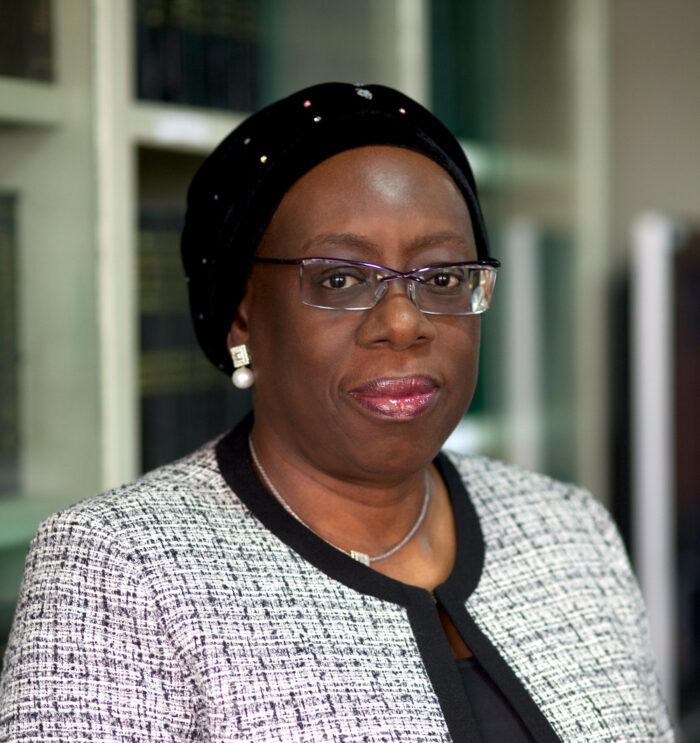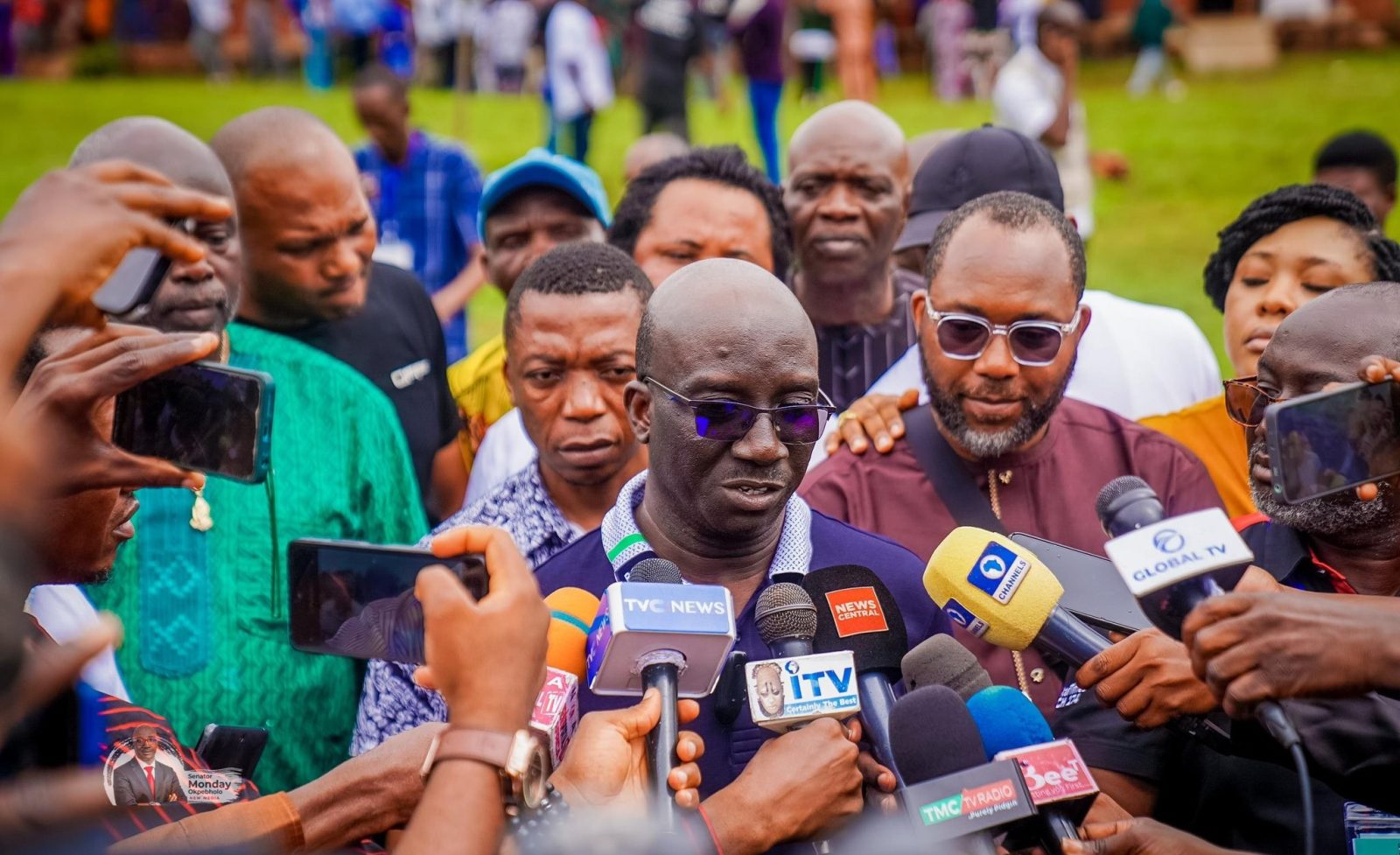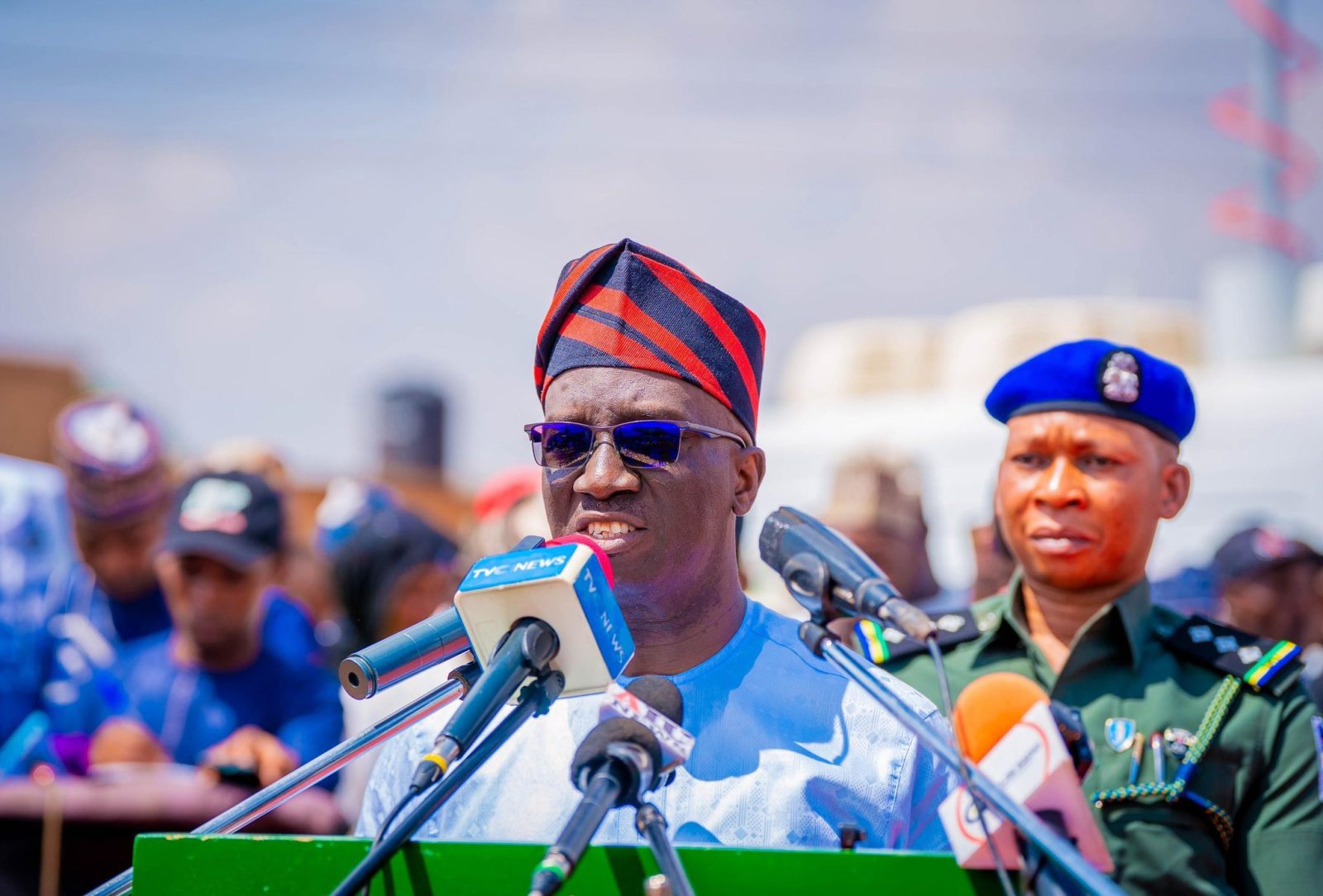The Chief Justice of Nigeria (CJN), Justice Kudirat Kekere-Ekun, has called for synergy between the judiciary and the media in promoting justice, transparency, and accountability in the society.
Opening the National Association of Judiciary Correspondents (NAJUC) media conference in Abuja, the CJN said the synergy is crucial in bridging the gap between the two vital institutions.
Represented by the Secretary of the National Judicial Institute (NJI), Mr. Abdulaziz Olumo, Kekere-Ekun said the judiciary and media perform symbiotic roles in a democratic society.
According to her, while the judiciary upholds justice and the rule of law, the media serves as the conscience of society, promotes accountability, and shapes public opinion.
The CJN said: “Together these institutions provide checks and balances that strengthen the fabric of democracy.
“As Felix Frankfurter, a former United States Supreme Court Justice, aptly stated, “A free press is not to be preferred to an independent judiciary nor an independent judiciary to a free press; neither has a premise over the other; both are indispensable to a free society.
“While the media is entrusted with the responsibility of informing the public about judiciary activities, the judiciary relies on accurate and ethical reportage to enhance public confidence in its work.
“However, the power of the media to influence public opinion requires careful management, especially when its focus turns on judicial proceedings.
“The question posed by Robert J. Cordy, a former associate justice of the Massachusetts Supreme Judicial Court, that is pertinent here is: “What happens when the free press turns it’s sight on the court, scrutinizing, sensationalizing and exposing the work of the Judiciary?.
“The media’s capacity to shape narratives and perception is undeniable. As stated by Jim Morrison, who ever controls the media controls the mind, this underscores the immense responsibility placed on journalists to report truthfully, fairly and objectively.
“Unfortunately, the commercialization of news and external influences have lead to the rise of sensationalizing, a practice that distort facts, erode trust and undermines the essence of journalism.
“Sensationalize headlines such as the famous 2016 headline “We raided the houses of corrupt and unholy Judges says DSS” can paint a bad picture of the Judiciary and it’s Officers.
“Such reporting often devoid of context compromises the integrity of the justice system and mislead the public. Closely tied to this issue is trail by media, where premature and often bias media narrative prejudge cases and infringe on the constitutional right of individuals.
“A classic example is the United States case of Shepard against Maxwell 1954, where extensive media coverage not only prejudice the trail but also compel the US Supreme Court to overturn the conviction due to the denial of a fail trail.
“This case points out the profound implications of media interference in judicial processes and underscores the need for journalists to uphold the principles of fairness and impartiality.
“It is imperative for media practitioners to remain steadfast in their commitment to truth and objectivity.
As Mahatma Gandhi rightly observed, “The sole aim of journalism should be service.” It is imperative for media practitioners to remain steadfast in their commitment to truth and objectivity.”
In his keynote address, a human rights activist and constitutional lawyer, Prof. Mike Ozekhome (SAN), said that despite criticisms and abuses, the judiciary and legal professionals are indispensable to the existence of a functional society.
In his paper with a theme: “The Role of Courts in Enforcement of Judgments” he posited that the role of the court is profoundly sacred, with judges serving as God’s representatives on earth, a position entrusted to them by society itself.
He said: “The judiciary must take proactive steps to redeem its own image and restore public trust, lest misconceptions and negative perceptions, which often diverge from reality, continue to tarnish the institution’s reputation.
“Judges must unwaveringly reject corruption in all its forms, regardless of its disguise or presentation, so that when advocates like myself come to their defence, we can do so with unshakeable confidence and conviction, standing on the solid ground of their unimpeachable integrity.
“That was why last week i wrote an article that was widely published: “critiquing judges and judgements, a dividing line”.
“While criticizing a court’s judgment is a legitimate exercise, there is a distinct line that must not be crossed, separating constructive critique from personal attacks on a judge’s character, which can be detrimental and unbecoming.
“A former Chief Justice of Nigeria astutely observed that a corrupt judge poses a far greater threat to societal well-being than a person wielding a dagger in a crowded marketplace.
“While an individual wielding a dagger can be physically apprehended, a corrupt judge inflicts far more insidious harm, deliberately eroding the moral foundations of society and causing irreparable distress to countless individuals through the egregious abuse of their office, all while retaining the ironic title of Honourable.”
Presenting his paper titled “Aftermath of Supreme Court Judgement on Local Government Financial Autonomy, What Next”, the Minister of Justice and Attorney General of the Federation (AGF), Prince Lateef Fagbemi (SAN), revealed that his pivotal decision to embark on public interest litigation, fighting tirelessly for the autonomy of local governments, was sparked by his enlightening interactions with journalists.
The AGF painted a vivid picture of the dire state of local government secretariats, revealing that many had been overrun by weeds and bushes to the extent that visitors would feel compelled to recite prayers of protection upon approach.
He said: “The situation was absolutely dire, with the Secretariat’s financial autonomy severely curtailed. Even the simplest of purchases, like basic stationery, required prior approval from the governor.
“We have been treated to a plethora of amusing arguments both before and after the Supreme Court judgment, with some claiming that local government officials aren’t mature enough to handle their responsibilities.
“I couldn’t help but pose a question to these critics: Are they truly better equipped than the local government officials they’re so quick to judge?.
“We’ve been hammering home a crucial point to local government officials: unlike governors who enjoy immunity, they are vulnerable to prosecution.
“This stark reality should serve as a warning, reminding them that reckless spending of local government allocations could easily land them in Kuje prison or any other correctional facility in Nigeria.
“Judicial correspondents play a vital role in reporting judicial activities and ongoing orders, serving as a crucial link between the judiciary and the public.
“The dissemination of information by judicial correspondents carries a profound patriotic responsibility, demanding concise and unbiased reportage that upholds the integrity of the judiciary and the press, both essential pillars in sustaining our democratic system.
“The laborious work you do in reporting the daily activities of the Judiciary, especially court proceedings and breaking the news on landmarks and important judgements, kept the Nigerian public fully abreast of the activities of our court at all levels.
“I am delighted to acknowledge that this esteemed association has consistently demonstrated unwavering commitment to its noble responsibility, providing comprehensive and accurate reportage of judicial activities and landmark cases, particularly the recent, highly publicized case concerning local government autonomy.
“The association’s meticulous coverage and in-depth analysis of this seminal case have not only informed the public but also contributed significantly to the national discourse on this critical issue.”
Earlier, in his welcome address, NAJUC Chairman, Mr. Kayode Lawal, emphasised that the conference aims to facilitate interaction and exchange of ideas between key stakeholders in the judiciary and journalists, promoting a deeper understanding and collaboration between these two vital institutions.
He extended his heartfelt gratitude to the distinguished keynote speaker and special guests for honouring the conference with their esteemed presence.





















Leave a comment